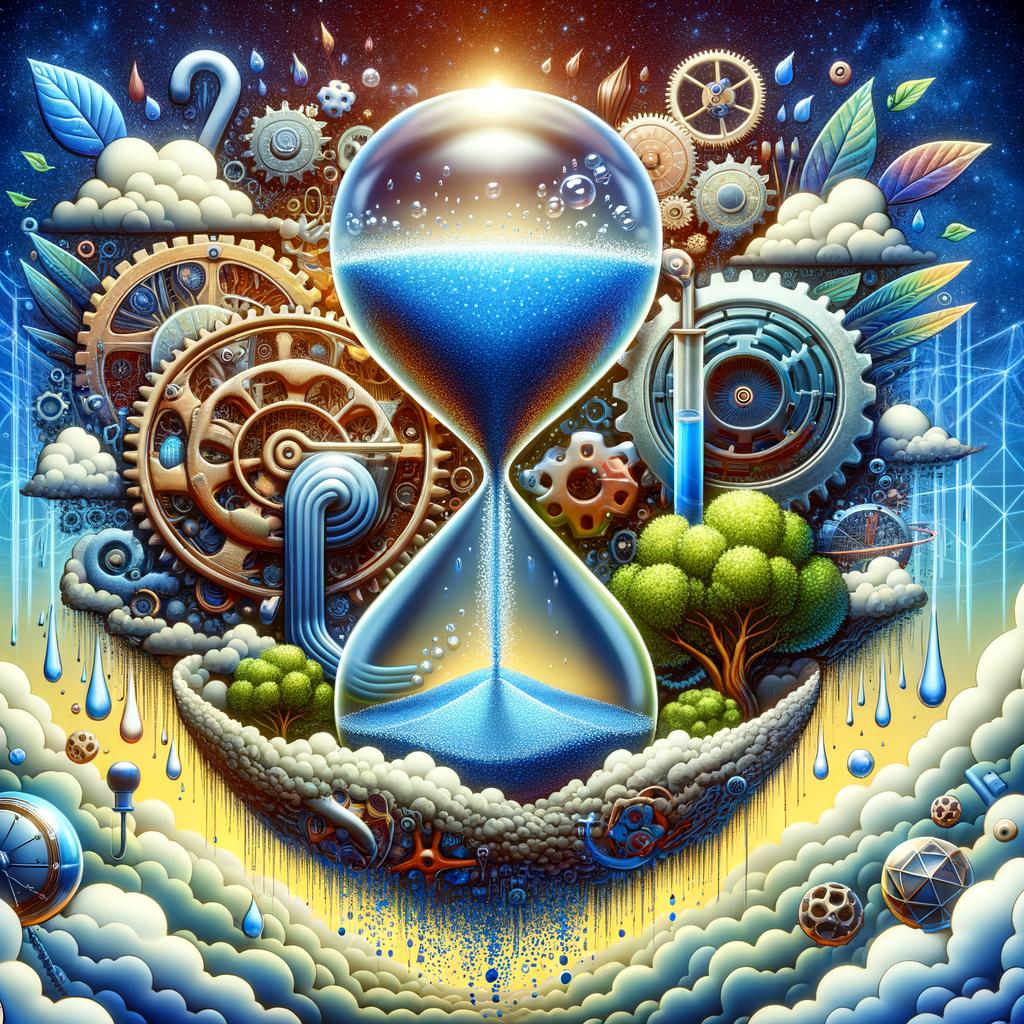Why Sleep Apnea May Be Keeping You Up – All Night
So you’re here, wondering why sleep apnea and frequent urination seem wedded like Romeo and Juliet, fueling those unnecessary night-time bathroom trips that ruin your restful slumbers? Well, fret not. We’re taking a deep dive into your nocturnal nuisances.
In a nutshell, sleep apnea, characterized by interrupted nocturnal breathing patterns, can lead to inconsistent sleep recursions and regular physical arousals at night. These perturbations can strain the bladder, causing an individual to urinate more frequently. But, there’s more than meets the eye when it comes to this bedtime blooper, as the shadows of night-time nature calls hide beneath a plethora of health factors and lifestyle habits.
Buckle up as we traverse the terrain of topics related to sleep apnea and frequent urination, including a glimpse into the world of nocturnal polyuria, lifestyle factors, and simple solutions for mending your nights.
The Link Between Interrupted Wakes and Waterworks
It comes as no surprise that sleep apnea, known for stealing away serene sleep, also pilfers the peace from your bladder. Just as a thief works under the cloak of darkness, so too does sleep apnea, causing urinary turbulence when you least expect it.
The Plotting Polyuria
Nocturnal polyuria, the nightly nemesis responsible for excessive nighttime urination, hatches its heinous scheme through uninvited arousals brought about by sleep apnea. The constant wake-sleep cycle imposed by sleep apnea triggers a hormonal hysteria, leading to a frequent flush of fluids into the kidneys and subsequently, an overactive bladder.
The Role of Lifestyle and Comorbidities
While we’ve unmasked the main villain, it does not tread alone in causing urinary confusion. Certain lifestyle choices and health conditions are the criminal sidekicks aiding this nocturnal nuisance.
Alcoholic Accomplices
The consumption of alcoholic beverages, especially closer to bedtime, is an accomplice to these mischievous miseries. Alcohol, acting like a mock barrier to your bladder’s restrictions, increases urine production, making matters worse for those with sleep apnea.
Journey from Arousals to Overactive Bladders
Understanding this complex relationship between sleep apnea and frequent urination roots back under the concept of an overactive bladder provoked through physical arousals.
Breaking Down The Bedlam
When one experiences an episode of sleep apnea, it’s akin to a jolt. This sudden arousal puts pressure on the body, tricking it into thinking that it’s time to wake up and partake in daytime activities – including bathroom breaks, causing more frequent urination.
Drifting back to Dreamland: Solutions
However, in the face of adversities, there’s always hope. To begin warding off these uninvited bathroom breaks, consider engaging in good habits such as decreasing liquid intake before bed, maintaining a regular sleep schedule and incorporating exercises to strengthen bladder control.
Medical Management
In the grand scheme of curing this nocturnal curse, medical treatments for sleep apnea such as continuous positive airway pressure (CPAP) therapy can work wonders by reducing apnea episodes, thus alleviating the symptoms of overactive bladder.
Wrapped Up in Whispers of Average Nights
From nocturnal polyuria to our lifestyle choices, the maze of frequent urination and sleep apnea is interconnected in a multitude of ways. However, with the right tools, navigation is doable. Hope isn’t a metaphorical beacon lighting up in the distant horizon. It’s within the grasp of everyone battling this nighttime terror.
Frequently Asked Questions
1. Are sleep apnea and frequent urination connected?
Indeed. Sleep apnea, causing regular sleep disturbances and body arousals, can strain the bladder and lead to frequent urination.
2. How does sleep apnea lead to overactive bladder?
The ongoing sleep-wake cycle imposed by sleep apnea can result in hormonal changes which increase urine production, leading to an overactive bladder.
3. Can lifestyle choices impact nighttime urination?
Certainly. Consuming alcoholic beverages especially closer to bedtime increases urine production, thereby intensifying the frequency of night time urination.
4. How can one reduce night time urination?
Good habits like limiting liquid intake before bed, maintaining a regular sleep schedule and practicing exercises for bladder control can help in reducing night time urination.
5. Can medical treatment for sleep apnea help with frequent urination?
Yes, medical treatments such as continuous positive airway pressure (CPAP) therapy can reduce apnea episodes, thereby alleviating the symptoms of an overactive bladder.


